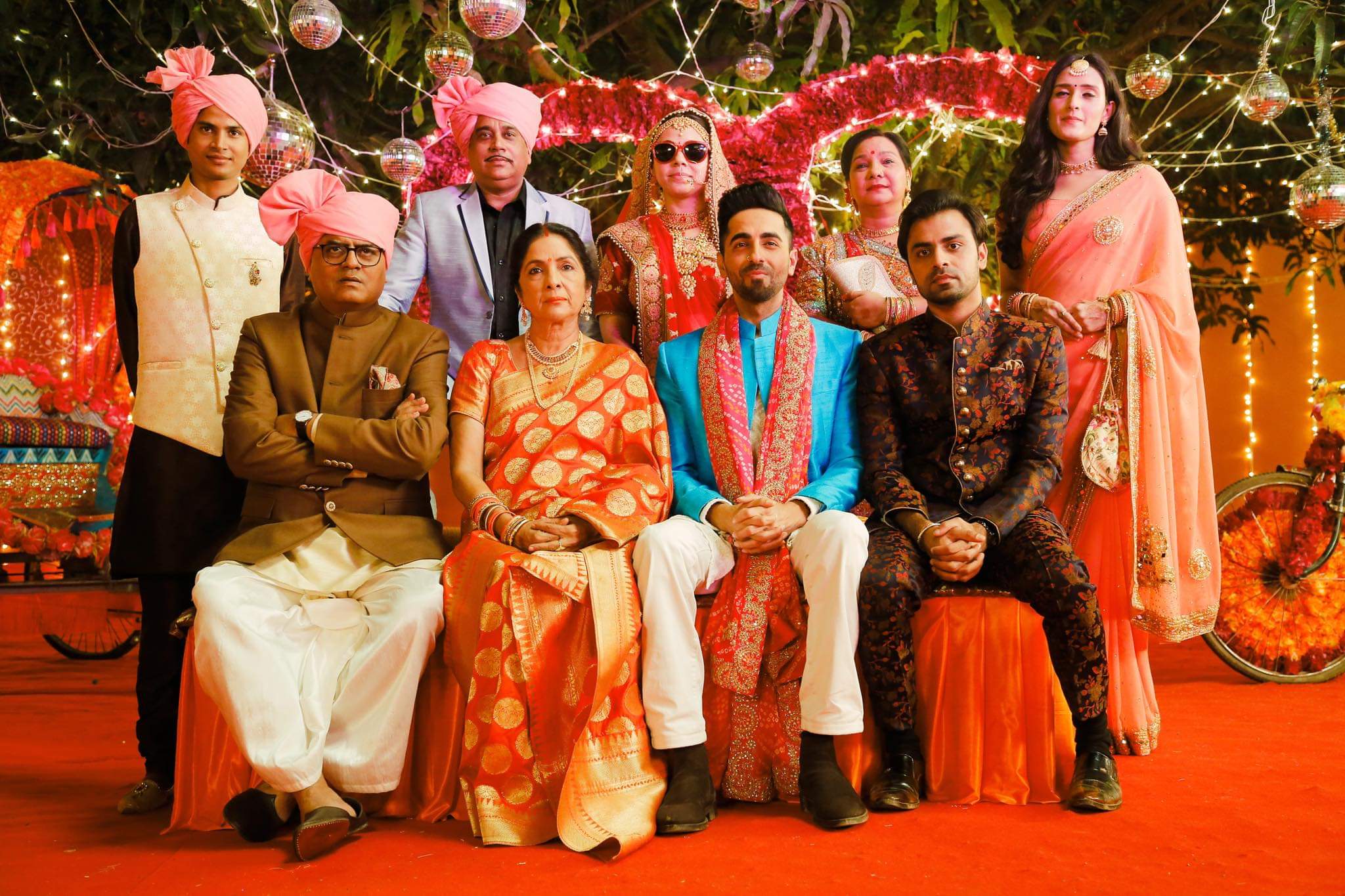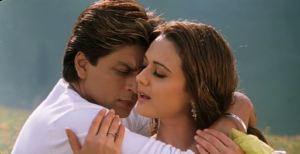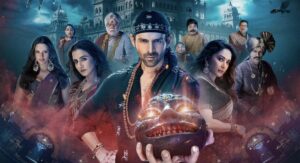
India is not yet ready for a Call Me By Your Name where queer folks would express love with gay abandon. But the country has also walked past the grotesque Dostana phase which shamelessly treated the LGBTQIA community as second-hand citizens. We are certainly over the insensitivity of Chanthupottu and numerous other mainstream films which judged individuals whose sexuality or mannerisms defied conventions. For sure, a rigid, diverse developing nation like India is a tough nut to crack but Ayushmann Khurrana, who is Bollywood’s Renaissance Man, has his ways to address the unaddressed. In his latest feature Shubh Mangal Zyada Saavdhan, Khurrana is a gay man dealing with homophobia in his partner’s family. Debutant filmmaker Hitesh Kewalya’s film is less of a love story. It is solely about driving the message home, literally. That’s a wonderful new journey for fiction on homosexuality to charter. However, unfortunately for the celebrated Khurrana genre and queer community alike, the film refuses to fly despite the writer (Kewalya) peppering his screenplay with dollops of comic situations.
Based in an upper caste household in Uttar Pradesh – a setup characteristic to Khurrana’s films – Shubh Mangal Zyada Saavdhan is about Kartik (Khurrana) and Aman (Jitendra Kumar) who are in love. Homophobia plagues the latter’s educated family and hell, predictably, breaks loose. The father Shankar (Gajraj Rao) tries all tricks in the book, right from religious rituals to emotional blackmail to get his son out of his despicable habits. The mother Sunaina (Neena Gupta), like every Indian wife ever, joins force without considering logic behind doing so.
Now, this is a tricky atmosphere and full marks to writer-director Kewalya for giving the LGBTQ community the dignity it deserves. At no point does the film mock the same-gender love in any fashion. It is empathetic and high percentage of its humour is arched on ancillary characters and their quirks. Kartik and Aman’s romance is armoured with two hilariously placed kissing scenes – a revolution in mainstream Bollywood. The intents are golden and mood is exceedingly non-judgemental. Shubh Mangal Zyada Saavdhan is desperate to see same-gender love normalized, by hook or crook, but the middling screenplay and lacklustre making pose as gargantuan threats.
The prime issue with the queer comedy drama is the family setup that Kewalya designs. Filled with unusual people, Tripathi family comes off as one that exists in Utopia, far-detached from the rest of the society. They are bizarre, their humour and manner of daily dialogue are unusual. The head of the family (Rao) is a scientist who recently developed a variety of black cauliflower. His brother Chaman’s (Manurishi Chadda) spinster daughter Rajni/Goggle (Manvi Gagroo) is half-blind and is desperate to get married to a 50-something widower. The neighbourhood lass Kusum (Pankhuri Awasthy) who is hell bent on marrying Aman has her share of idiosyncrasies too. By the end of Shubh Mangal Zyada Saavdhan, the family ends up as a group of oddballs who function in isolation, with no knowledge of each other’s eccentricities as there exists little coherence between the series of events that unfold. For sure, absurdist comedy is a well-defined genre in theatre and cinema but that specific space is not what Kewalya’s film ventured to become. It just becomes one by accident.
If the writing is consistently mediocre with some humourous bits here and there, Kewalya’s direction is unfathomably shoddy. The director has no sense of staging his scenes, no specific idea of how to compose a frame or what to do with the people in it. There are numerous instances where characters enter a scene, spout a dialogue or two, and later go stand and in the background – muttering something by themselves. I felt as if it was an amateur play where the side actors had no choice but to stay on the stage while the lead players took to the mic. The sole instance where he displays some hold over his craft is the one where Shankar beats Kartik to pulp. Shot in slow-motion, this snazzily shot scene works quite well.
Doing further damage to Shubh Mangal Zyada Saavdhan is the background score which is the most annoying I have come across in a very long time. Accompanying each funny (or unfunny) gag is an archaic stock sound which even Charlie Chaplin would have discarded for being utter mood killers. The music is listless (Tanishk Bagchi, Vayu Srivastava) as they are neither of the chartbusting variety nor are they helping the narrative move ahead in any manner. From a parallel perspective, I had envisioned how a mainstream Bollywood film about queer love would feature a mesmerizing romantic number. A dreamy song could easily have spilled some dust of sizzle to this highly cold affair which, anyway, milks nostalgia as per its whims and fancies.
Performances are adequate, not extraordinary. As expected, Gajraj Rao and Neena Gupta walk away with the best lines and their enactments of the same are even better. Ayushmann Khurrana and Jitendra Kumar pass muster. Kumar gets a terrific scene where he explains his feelings for Khurrana, citing the flow of bodily chemicals. As lovers, they barely get a couple of solo scenes and they aren’t enough to picture them as passionate lovers. Manurishi Chadda is good but we have seen better of him. Sunita Rajwar as his wife Champa is hilarious and so is Neeraj Singh as their son Keshav. However, my pick from the entire cast is Manvi Gagroo’s Goggle whose inherent edginess is something that the film fails to capitalize.
This reminds me how Shubh Mangal Saavdhan (written by Kewalya) is one of my favourite Ayushmann Khurrana films. Seeped in an atmosphere that’s so real and relatable, the film’s conversations felt organic and the emotional scenes were of heartfelt. While Shubh Mangal Zyada Saavdhan is not a sequel, it struggles in the absence of spontaneous humour mouthed by life-like characters which was the mainstay in the RS Prasanna-helmed film.
The only Indian film I would compare Shubh Mangal Zyada Saavdhan with would be Sachin Kundalkar’s 2012 comedy of manners Aiyyaa. There again, the filmmaker had full knowledge of his quirky universe and weird character motivations. In Kewalya’s film, elements exist for no apparent reason. I tried hard to come up with a logical explanation behind the ‘kaali gobi’ trope. I could compare the doctored vegetable to Shankar Tripathi’s brain which, influenced by diktats of the society, has eventually become inflexible to make way for a change. Now attacked by worms, Tripathi ends up setting fire to a heap of black cauliflower, simultaneously opening up to his son’s sexual preference. If at all that was the intended metaphor, in no way is it an example of clever screenwriting. Having said that, wouldn’t it have been refreshing if ‘kaali gobi’ were to be a positive element in the screenplay? As if it co-existed beautifully with the regular variety of cauliflower, as an alternate taste – just like Aman’s choice to be in love with Kartik. Shubh Mangal Zyada Saavdhan, that way, becomes a sincere film with zero common sense. I admire the way Kewalya and team score on empathy. They try hard to make the film an agreeable family fare and the strain is visible. Their attempt to draw parallels between Aman’s love story to his parent’s individual stories was a nice touch even though it never really paint a complete picture. In all honesty, if not for the mega responsibility that it shoulders, Khurrana’s film wouldn’t have amassed half the love it is showered on right now. For sure, the marginalized community, which received its mainstream limelight after eons, deserved a much better film to be their representative.

